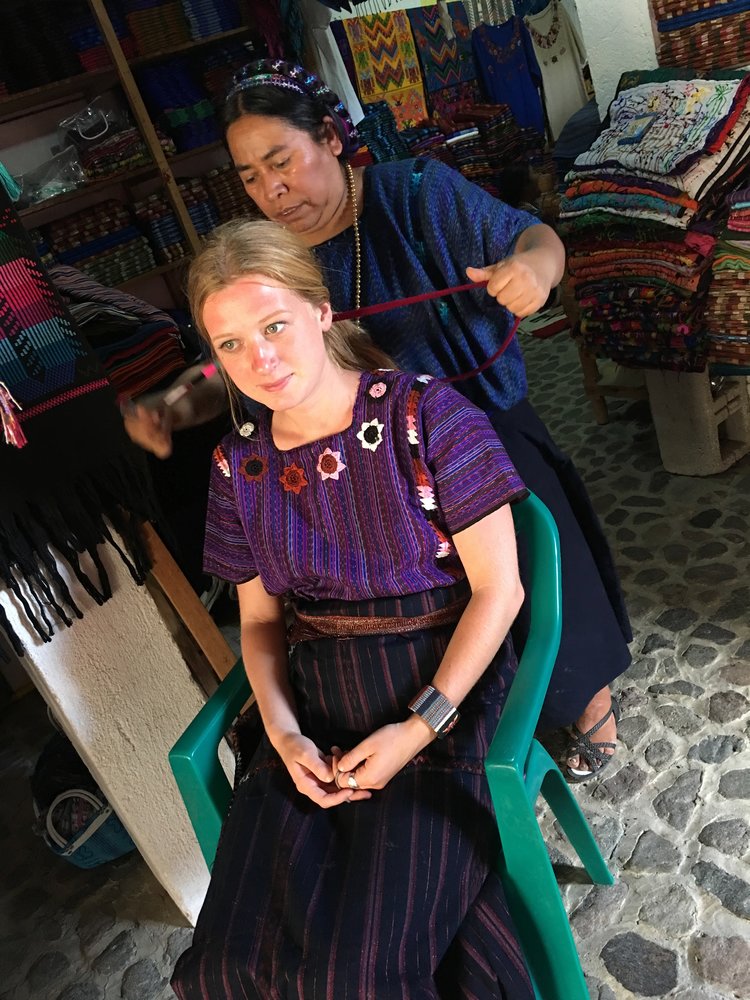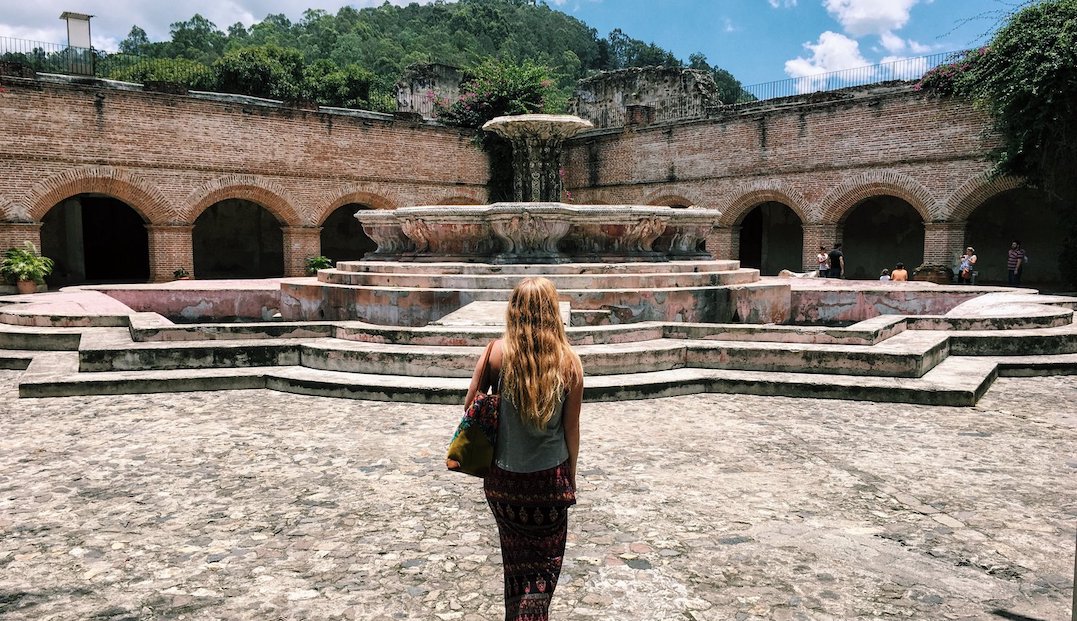One word continued to resurface as Hannah described her first personal encounters with a foreign language: disconnected. Though she’d taken Spanish classes in high school, she hadn’t learned much. Coming from a small town, she says, the skill just wasn’t valued highly, and the class was seen as a blow-off. Still, she vividly remembers a moment that illustrated the frustration that came with learning a new language. She was sitting in the class one afternoon, when she got so upset over the difficulty of the work that she slammed her book shut, stood up from her desk, and walked all the way home. Telling the story now, Hannah laughs. Her perspective has changed a lot since then.

She eventually left that class behind for good, attending Michigan State University, where she graduated last year with a degree in Advertising and a minor in Environmental and Sustainability Studies. The incident might’ve been forgotten altogether, had she not been confronted with the language again, but this time, in a different context. While working in an advertising position at the State News, she befriended Raquel Mishaan, a fellow MSU student originally from Guatemala (whose story we shared last year). Hannah decided to join Raquel on a two-week long visit to the country, a step outside her comfort zone that would fundamentally change how she interacted with others, thanks to the new lens of a foreign language.

One of Hannah’s most memorable encounters in Guatemala happened on a day trip passing through a small village. When they arrived, she remembers being greeted by a little girl who, so excited by the visitors, ran up to Hannah and started speaking to her in excited, rapid-fire Spanish. Raquel had encouraged her to study before the trip using the app Duolingo, where she had learned some helpful phrases, but it wasn’t enough for this. She knew how to say she didn’t speak Spanish, and she still recalls the look of disappointment and confusion on the girl’s face when she heard Hannah say, “No hablo español.” Her group spent the afternoon in that village, and she remembers the girl hanging around her the whole time, holding her hand and taking videos with her phone. It was a good memory, but it was underscored by a feeling of disconnect, a frustration with not being able to speak with the girl.

She had experienced this feeling before, in a different context: her childhood best friend was Romanian, and she remembers going over to her house and feeling out of place for not knowing the language. Though it was frustrating not to be able to communicate with the family, it had been manageable. She could always go back to her own home, just down the road. It was only while staying in a different country, where just going home to people who spoke the same language as you wasn’t an option, that Hannah realized the privilege she had as a native English speaker in America.
Being out of her comfort zone made her see these personal interactions with language in a new light, and she realized that “language isn’t just a means for understanding signs or reading a menu. Language is what connects you to other people.” She then explained why this realization is so important for her: “I think one of the most important things in life is human connection. To me that’s why we exist, that’s why we’re here.” There were people she couldn’t connect with on a deep level because she only spoke English, even beyond the child from her trip– her best friend’s mother, coworkers in a past job who primarily spoke Spanish, and even some students at Michigan State whose native language was different.


The rest of her trip was an improvement. With the encouragement of the good friends she traveled with, she started to speak a little more. The improvement in her Spanish was not so much an improvement in skill, but rather in confidence. Before, she was held back by embarrassment. Now, she had a reason to make an effort, and as a result pushed beyond the feeling. She made it sound simple when she explained it to me: “Throughout the time, I became more brave with what I had in me.”
Her newfound passion continued to inspire her when she returned to MSU after visiting Guatemala. She decided to intern with MSU Languages as an outlet where she could work with others who were also passionate about the transformation that’s possible through language learning. Now graduated, she works as a Marketing and Content Strategist for a small company, Pack Hacker, which sends her on trips and allows her flexibility to travel, so she can continue to build community at home as well as connect with others in new places. In her spare time, she hopes to keep learning a little more of different languages– Spanish, Romanian, or the language of the next place she travels– even if it’s just a few words a day. Even though Hannah doesn’t work here any longer, her story remains as a reminder to be brave, continuing to push ourselves to broaden both our vocabulary and our perspective. In doing so, we can continue to foster deeper connections with those around us.
Follow Hannah through her adventures on Instagram.
– Story by Katherine Stark

